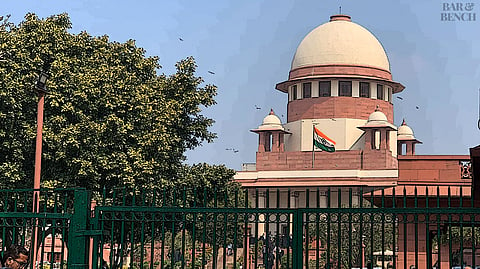
- News
- Columns
- Interviews
- Law Firms
- Apprentice Lawyer
- Legal Jobs
- हिंदी
- ಕನ್ನಡ

After the proclamation of Emergency in India in 1975, the Supreme Court was faced with the challenge of determining whether the rights under Article 21 of the Constitution stand suspended in the wake of a declaration of Emergency under Article 359(1).
This question came up after Indira Gandhi’s government had detained political rivals and dissenters without trial, leading to a bunch of Habeas Corpus petitions.
A majority of the Constitution Bench would hold that when Emergency is in operation, the rights under Article 21 would stand suspended. Justice HR Khanna famously dissented.
In 2017, history was re-written when in KS Puttaswamy v. Union of India, famously known as Right to Privacy judgment, six judges ruled that the judgment in ADM Jabalpur should be struck down.
The judgment rendered by DY Chandrachud J stated,
“The judgments rendered by all the four judges constituting the majority in ADM Jabalpur are seriously flawed. Life and personal liberty are inalienable to human existence…The human element in the life of the individual is integrally founded on the sanctity of life…No civilized state can contemplate an encroachment upon life and personal liberty without the authority of law. Neither life nor liberty are bounties conferred by the state nor does the Constitution create these rights…
…Justice Khanna was clearly right in holding that the recognition of the right to life and personal liberty under the Constitution does not denude the existence of that right, apart from it nor can there be a fatuous assumption that in adopting the Constitution the people of India surrendered the most precious aspect of the human persona, namely, life, liberty and freedom to the state on whose mercy these rights would depend.”
Chandrachud J went on to say that though the Court had impliedly struck down ADM Jabalpur previously, an express affirmation of the same was required.
“In IR Coelho v State of Tamil Nadu, this Court took the view that ADM Jabalpur has been impliedly overruled by various subsequent decisions. We now expressly do so.”
Justice Sanjay Kishan Kaul took his criticism of the judgment a step further, stating,
“I fully agree with the view expressly overruling the ADM Jabalpur case which was an aberration in the constitutional jurisprudence of our country and the desirability of burying the majority opinion ten fathoms deep, with no chance of resurrection.”
However, it seems that burying the ghosts of ADM Jabalpur ten fathoms deep does not seem to be enough.
At least two Habeas Corpus petitions are pending before the Supreme Court challenging detentions in connection with the recent lockdown in Kashmir.
One petition filed by Sitaram Yechury challenges the detention of Mohammed Yusuf Tarigami, a CPI(M) leader from Kashmir.
This petition was filed on August 19 and defects were cleared on August 21. The matter was mentioned on Friday before Justice NV Ramana, who ordered that the case be listed on August 26 before an appropriate Bench.
However, the matter was not listed yesterday despite a judicial order to that effect.
Another Habeas Corpus petition in Supreme Court has been filed by Mohammad Aleem Syed, a student belonging to Kashmir who is currently in Delhi and is unable to get in touch with his parents. This petition was filed on August 10 and defects were cleared on August 16.
This matter is also yet to be listed.
Both these matters, it is understood, are likely to be listed on Wednesday this week.
The case by Sitaram Yechury has not been listed despite a judicial order. This raises the question of whether the Registry on the administrative side can fail/refuse to comply with a judicial order as regards listing. The case by Mohammed Syed raises the issue of inordinate delay in listing the case, something which is crucial in Habeas Corpus petitions.
Habeas Corpus matters deal with individual liberty, which is the edifice of Article 21. People have been allegedly detained without any charge or trial.
When ADM Jabalpur was rendered, the country was under National Emergency, with the Executive wielding the powers of Parliament
The Supreme Court abdicated its responsibility then, stating that rights including those that are fundamental stand suspended when Emergency is in operation and Constitutional courts cannot do anything about it.
Though there is no National Emergency currently, the highest court feels that there is no emergency in listing and hearing cases concerning life and liberty of citizens who are detained without adhering to the procedure established by law.
Has the Supreme Court, through its omissions on the administrative side, resurrected the ghosts from ten fathoms deep after they were supposedly buried less than two years ago?